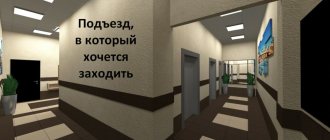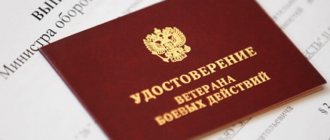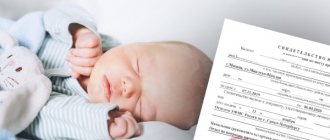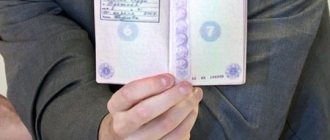Various state protection measures for disabled people are provided for by Law 181-FZ of 1995. One of them is providing housing for people with disabilities. This function is assumed by the state. Disabled people and families with such children can be provided with premises under a social lease agreement or as property. In many regions, instead of housing, those in need receive subsidies for individual construction or the purchase of an apartment.
Which disabled people are entitled to housing?
Disability itself is not a reason for obtaining an apartment. Based on Art. 17 of Law 181-FZ, a citizen must be recognized as in need of improved conditions and register. To do this, you need to contact the local administration, which will conduct an inspection of his living space and make a decision on the need to register.
In accordance with Art. 51 of the Housing Code, the need to improve conditions is for citizens who:
- provided with an area of 1 family member less than the established norm;
- live with relatives who have serious illnesses;
- do not have their own premises under a rental agreement;
- live in an emergency room.
The procedure for allocating housing depends on the reasons for receiving disability, the date of registration as a person in need, as well as the region of residence of the citizen, while the disability group does not play a role. In addition, the state of health and other circumstances are taken into account, namely, his rehabilitation program. For example, it may require the presence of ramps, elevators, or accommodation no higher than the 2nd floor. It is with these requirements in mind that the administration must allocate an apartment to the disabled person, otherwise he may refuse the proposed option without losing his right to improve conditions.
If the disabled person was registered before 2005
In this case, the form and procedure for obtaining an apartment is established by the legislation of the region. For example, in Moscow, people with disabilities are provided with municipal housing under social rental contracts. In many areas, instead of allocating an apartment, they issue a cash payment for its purchase or construction of their own home. Its size is calculated taking into account the number of citizens who are entitled to this benefit, the standard of living space per person, which is 18 m2, and the average cost of 1 m2 of total area in a given region. To receive a subsidy, a personalized certificate is issued.
These standards apply to all categories of disabled people, including military personnel, employees of internal affairs bodies and the Federal Penitentiary Service, firefighters, and disabled combat veterans who were injured due to injury during service. Family members of a deceased disabled person belonging to these categories can also apply for housing or subsidies from the state.
Queue for an apartment for disabled people of group 1
In general, none of this is needed.
A disabled person has the right to purchase a plot without bidding. 2. I am disabled, group 1, and so is my grandmother. My grandmother and I decided that I would instead participate in the privatization of her share in the house. I called a lawyer to represent my interests in court, but he said to check the housing for more owners. I wrote to the city mayor’s office and they replied that my late grandfather was still in the house there, and he had a share there.
I thought that due to the death of the legal successor, everything goes to the grandmother by direct inheritance, but it turns out not. And that’s why I didn’t enter into inheritance even though I could. Question: what application should I make to the court and what should I write in it?
Here is the answer to my question: With a claim for recognition of property rights by inheritance.
And my father is still alive, so he will be against it (he is very mercantile). Moreover, he is registered in this house together with his grandmother.
Is he in line in front of me? Here is another answer: If your father is the son of a deceased grandfather, then he has the right to inheritance. Is there any way to get around this fact through the court, because: 1-he has housing, but I don’t, 2-my grandmother wants to give me her share, 3-he is an absolutely mercantile person and 4-he doesn’t care about my fate ?
Hello. There are a lot of “inconsistencies” in your question. Let's. Understand. 1. If you decide that you will participate in privatization, it means that your apartment is not privatized, that is, it does not belong to either your grandparents or you, but belongs to the municipality.
So? 2. If the answer to question 1 is YES, then there can be no talk of any shares in the apartment or any inheritance. No one entered into an inheritance of this apartment and could not enter into it; there is no need to talk about any legal succession, except for the re-conclusion of a social tenancy agreement and the re-registration of a personal account.
Residential premises provided under a social tenancy agreement are not part of the inheritance mass, are not inherited and are not divided into shares. 3. If the apartment is municipally owned, filing a claim in court to recognize ownership rights through inheritance is a waste of time.
If a disabled person is registered after 01/01/2005
Citizens who have been registered as needing improved conditions since 2005 receive housing on a first-come, first-served basis. The exception is for persons whose premises are recognized as unsafe, i.e. beyond repair, as well as those with severe forms of chronic diseases. The list of such diseases is approved by Order 987n, these include:
- acute forms of tuberculosis;
- oncological diseases;
- epilepsy;
- skin lesions with copious discharge;
- mental disorders that require constant medical supervision.
For these categories of beneficiaries, the area norm per person can be increased, but not more than 2 times. As the Supreme Court has repeatedly pointed out, housing must be provided immediately after the disabled person has the right to receive it out of turn.
How to get housing for a disabled person of group 1
If a citizen and (or) members of his family have several residential premises occupied under social tenancy agreements, rental agreements for residential premises of the housing stock for social use and (or) owned by them, the level of provision with the total area of the residential premises is determined based on the total the total area of all specified residential premises. ?The Decree of the Government of the Russian Federation of June 16, 2006 No. 378 approved the LIST OF SEVERE FORMS OF CHRONIC DISEASES IN WHICH IT IS IMPOSSIBLE FOR CITIZENS TO RESIDE IN THE SAME APARTMENT. ? 1. Active forms of tuberculosis with the release of Mycobacterium tuberculosis A15 - A19 2.
Malignant neoplasms accompanied by copious discharge C00 - C97 3.
Chronic and protracted mental disorders with severe persistent or frequently exacerbating painful manifestations F00 - F99 4. Epilepsy with frequent seizures G40 5.
Gangrene of extremities A48.0; E10.5; E11.5; E12.5; E13.5; E14.5; I70.2; R02 6. Gangrene and necrosis of the lung J85.0 7.
Lung abscess J85.2 8. Pyoderma gangrenous L88 9.
Multiple skin lesions with copious discharge L98.9 10. Intestinal fistula K63.2 1. Urethral fistula N36.0 Good afternoon. My dad is disabled 1 gr. We live in a room apartment.
We have 2 rooms, according to the social rental agreement, 3 adults and 3 minor children are registered.
The total living area is 2 rooms. 3rd floor, terrible condition of the apartment. Small openings.
How can dad get his own apartment?
Ksenia, St. Petersburg Lawyer: Dmitry Grigoriev is now offline? Regarding separate housing for the disabled - in the presence of a certain disease, the list was approved by the Decree of the Government of the Russian Federation of June 16, 2006 N 378 “On approval of the list of severe forms of chronic diseases for which joint citizens living in one apartment, you can get housing out of turn. ?Look at the list and if you are included in it, you can get housing.
Hello. A friend of mine is visually impaired, group 1 (diabetes mellitus).
Providing housing for disabled people of the Second World War
This category of beneficiaries is provided with apartments at the expense of the state, regardless of the date of registration and financial situation on the basis of Law 5-FZ on veterans and Presidential Decree No. 714. They can receive housing under a rental agreement or as property. A veteran also has the right to apply for a subsidy for the purchase of an apartment or construction of a house. To calculate it, the standard area per person is taken to be 36 m2, not 18. According to the same rules, family members of a deceased WWII disabled person can receive housing or receive a cash payment.
What other categories of disabled people are entitled to housing?
To obtain the right to register as someone in need of improved conditions, a citizen must have separate housing. At the same time, some people who were not included in the queue also have the right to receive an apartment from the state.
- Disabled children who do not have parents and are in educational institutions. They can obtain housing after 18 years of age if, for medical reasons, they are able to care for themselves and lead an independent lifestyle. Moreover, they have 2 reasons for providing an apartment: as a disabled person, and as an orphan. They are required to provide them with housing out of turn.
- Persons with disabilities who are in social or medical institutions can, if they wish, stand in line for an apartment; they are provided with living space under a rental agreement on the same basis as other disabled people. If a citizen again ends up in a social or medical institution for medical reasons, then the right to housing received under a rental agreement is retained for 6 months. If family members live with him, the right to an apartment is not limited to any period.
- Disabled people who have rooms in dormitories can also register as needing improved conditions and receive an apartment on a first-come, first-served basis.
Housing for disabled people of group 1 in Moscow
Residential premises occupied by disabled people are equipped with special means and devices in accordance with the individual rehabilitation program of the disabled person. Disabled people living in stationary social service institutions and wishing to obtain residential premises under a social tenancy agreement are subject to registration to improve their living conditions, regardless of the size of the occupied area and are provided with residential premises on an equal basis with other disabled people. Disabled children living in stationary social service institutions, who are orphans or left without parental care, upon reaching the age of 18 years, are subject to being provided with residential premises out of turn, if the individual rehabilitation program for the disabled person provides for the opportunity to provide self-care and lead an independent lifestyle. Residential premises of the state or municipal housing stock, occupied by a disabled person under a social tenancy agreement, when the disabled person is placed in a stationary social service institution, are retained by him for six months.
Specially equipped residential premises of the state or municipal housing stock, occupied by disabled people under a social tenancy agreement, upon their vacancy, are occupied primarily by other disabled people in need of improved housing conditions.
1.2. It depends on what your diagnosis is, what your living conditions are and what your financial situation is.
2. I brought my husband for long-term treatment, I am the owner of the apartment where I registered, my husband was registered late and with a fine in Moscow.
We both graduated from higher educational institutions under the USSR, our work books were filled out in Russian with the USSR Coat of Arms. Today I was at the MFC and wanted to get advice on how to get a residence permit without a temporary residence permit, now I will register my husband at the clinic, he is a disabled person of group 1, we both graduated from the Russian sector and are Russian-speaking, in addition, my late Mother is ethnically Russian, was born in NEAR STALINGRAD, graduated high school there, then she lived with her sister in Krasnogorsk, she and her husband were military men, they served in Romania during the war.
Housing benefits
In addition to the opportunity to get an apartment from the state, people with disabilities have benefits in paying for utilities. They are compensated 50% of the fee:
- for the rental and maintenance of residential premises;
- for water supply, electricity, sanitation;
- for major repairs.
These social support measures do not depend on the type of housing and are provided to both tenants and owners.
Thus, in order to receive an apartment from the state, a disabled person should contact the local administration and register as having a need for improved conditions. Citizens with serious illnesses are provided with housing out of turn.
Question answer
Can I register as needing improved conditions if I currently live with my parents in the Tula region? The area of the apartment is 60 m2, our older brother also lives with us, he is 45 years old, disabled group 1 since childhood?
According to Art. 51 of the Housing Code, citizens whose area per person is less than the established norm are considered to be in need of housing. This indicator is determined by regional authorities. If in your area it is 15 m2 per person, then on this basis you will not be put on the waiting list.
Does a disabled person of group 2 have the right to receive housing?
Hello, I am disabled group 2 due to a general disease, I have had this group since birth. I am registered in the village with my father, but I can’t live there, there are no conditions for me there, I have to rent housing in the city, but it is very expensive, but there is no other way, since in our area there is no way for me to receive medical care , since there are no doctors for my specialized disease. Am I eligible to receive free housing? And what documents do you need to collect for this? what to do next with all this?
This is interesting: Article 15 of the Federal Law on the Status of Military Personnel with Changes for 2020
Disabled people and families with disabled children in need of improved housing conditions, registered after January 1, 2005, are provided with living quarters in accordance with the housing legislation of the Russian Federation.
Who is disabled?
Conditions for assigning disability
The conditions for group assignment are as follows:
- The human body has a serious health disorder with a persistent disorder of body functions caused by congenital or acquired defects, injuries, and serious diseases.
- A person needs social protection, including rehabilitation and habilitation.
- Limitation of life activity (complete or partial loss of the ability to move, communicate, care for oneself, control oneself, etc.).
Specialists of a special medical examination have the right to recognize a person as disabled, a referral for which can be obtained from a pension fund, a department of social protection of the population, or from a medical organization from the attending physician. It happens that a citizen is denied a referral for an examination, then he can contact the expert bureau independently.
Citizens who have received the status of “disabled” apply for a number of benefits from the state, including material support, transport benefits, reduced tax burden, etc.
In addition, the Government is committed to providing housing for disabled people in need of accommodation.
Download to view and print
Right to housing benefits
Housing benefits that disabled people can count on today are regulated by the Federal Law “On Social Protection of Disabled Persons” and the Housing Code.
What are these measures?
- Providing free housing.
- Allocation of housing subsidies to compensate for part of the purchased apartment.
- Providing disabled people with discounts on housing and housing and communal services.
- Allocation of land for individual housing construction for farming or gardening.
Federal law also lists the conditions under which people with disabilities and their families become eligible for additional space or other support measures.
Download to view and print
Do you need expert advice on this issue? Describe your problem and our lawyers will contact you as soon as possible.
Conditions for providing housing to persons with disabilities
- Family living in a residential building, the area of which, when calculated for each relative, does not meet the required standards.
- The technical and sanitary characteristics of the premises in which the disabled person and his family live do not meet the established standards.
- The apartment of a person using a wheelchair is located above the 2nd floor.
- The family of a disabled person lives in the same living space in adjacent non-isolated rooms with other families not related to them.
- In the same living space with another family, if the family includes a patient with a serious chronic disease, with whom it is impossible to be in the same room.
- A person with disabilities lives in a dormitory or in a communal apartment (there are exceptions to this subclause).
- Accommodation for a long time on the terms of hiring, subletting or renting living space.
Disability does not limit a person’s ability to obtain housing on other grounds provided for by other social support programs.
Procedure for providing benefits
Preferential housing for disabled people of group 2
Other housing benefits
In addition to measures to provide living space, disabled people of any group apply for various housing benefits that ease their financial situation:
- A 50% discount on payments for utilities and housing services (rent, electricity, heating, water supply).
- Discount on the purchase of coal, gas and other heating means for residents of houses where there is no central heating.
- Compensation of expenses for major repairs of the common property of an apartment building in the amount of 50%.
- Providing ownership or lease of a land plot for individual housing construction, as well as land for summer cottage farming and gardening.
We describe typical ways to resolve legal issues, but each case is unique and requires individual legal assistance.
To quickly resolve your problem, we recommend contacting qualified lawyers on our website.
How to get housing for a disabled person of group 1 in 2020
; priority right to allocate a land plot for individual housing construction, subsidiary farming; provision of monetary compensation to cover part of the costs of major repairs of the entire property of an apartment building; installation of telephone, radio without queue; discounts on payment for communication services, purchase of heating equipment (gas, coal, etc.) 50 percent payment for housing and communal services, etc. lack of footage (based on each resident); the living space where he lives does not comply with sanitary and epidemiological standards and technical conditions; accommodation in a communal apartment or hostel (with some exceptions); living together with persons with severe chronic illnesses, and it is impossible to be with them, etc.
For your information, a single disabled person is allocated a separate living space only on the condition that he can take care of himself without outside help.
Last changes
Our experts monitor all changes in legislation to provide you with reliable information.
The state provides various benefits and other types of support to socially vulnerable segments of the population. Therefore, in 2020, disabled people in the Russian Federation can legally apply for comfortable housing with ramps and other equipment for people with limited mobility. They can also count on improved living conditions. So, how can a person with a disability get housing?
Who should?
Dear readers! The article talks about typical ways to resolve legal issues, but each case is individual. If you want to find out how to solve your particular problem , contact a consultant:
+7 (Saint Petersburg)
APPLICATIONS AND CALLS ARE ACCEPTED 24/7 and 7 days a week.
It's fast and FREE !
It is worth noting that only citizens who have officially received the status of disabled people and a disability group can apply for housing. This category includes persons with disabilities, mental or physical.
Disability occurs due to a congenital disorder in the body or an acquired pathology. As a result, such a person becomes unable to fulfill a social role in society.
Recognition of disability is carried out by a special medical commission, which you can get to on your own or by referral from the pension fund/attending physician.
After being assigned the status of “disabled,” a person has the right not only to receive housing on preferential terms, but also to apply for other types of government support: financial assistance, reduction of the tax burden, and transportation benefits.
Housing for disabled people
Despite the fact that the state guarantees support for people with disabilities in housing issues, it is worth remembering that each case is individual. Understanding the provisions of the law is not a guarantee of results, since it is influenced by a combination of factors.
1, 2 or 3 groups
All people with disabilities, regardless of their group, have the right to housing.
The legislation provides guarantees both for citizens suffering from severe chronic diseases and for those whose disabilities are related to vision.
For children
A child officially recognized as disabled applies for a number of benefits, including housing. The number of square meters for which disabled children apply is determined by the decision of local authorities.
In Moscow, for example, the minimum per person is 18 square meters. meters.
For pensioners
Pensioners with disabilities also apply for housing with the following conditions:
- the presence of special lifts or ramps;
- assistance from the authorities when moving to the first floors of the building.
Disabled pensioners receive housing on a first-come, first-served basis, unless they have a medical condition that makes it possible to obtain housing faster.
What is included in housing maintenance fees? See here.
The family of a disabled child defended the right to receive housing out of turn
The child was officially recognized as disabled due to a disease that makes it impossible for citizens to live together in the same apartment, which, according to the Housing Code of the Russian Federation, gave his family the right to receive residential premises out of turn under a social tenancy agreement. In addition, two years later, the mother of a disabled child received the status of low-income and in need of improved housing conditions, since the private house that the family occupied turned out to be unsuitable for living. But, despite all these reasons, officials did not provide people with housing out of turn.
In the interests of the child, the local prosecutor's office went to court. The court did not accept the arguments of representatives of the city administration that in 2012 there was no money in the budget for the purchase of residential premises, and that there was no reason to provide living space to the father of the family out of turn, satisfying the demands of the prosecutor's office.
27 Aug 2020 lawurist7 258
Share this post
- Related Posts
- What are the benefits for a labor veteran in 2020?
- Rent Benefit for Military Pensioners 2020 in the Bryansk Region
- Will there be a lump sum payment for maternity capital in 2019?
- What benefits does a UIS veteran medal provide?
Registration procedure
How to get housing for a disabled person of group 1, 2 and 3:
- Collect the necessary documents and register in the register of disabled people. It is best to check the list of required documentation for this at the Pension Fund office at your place of registration or residence.
- Contact your local government body with an application for registration. A disabled person can submit an application either personally or through a trustee (guardian) or another person representing his interests on the basis of a power of attorney.
- If you acquire new diseases or deteriorate your health, immediately notify your local government authority.
Recognition as needy
In order for a disabled person to be recognized as in need of improved living conditions, certain grounds must be present:
- living in living space that does not meet accepted sanitary and technical standards;
- non-compliance with living space standards per person;
- living in housing occupied by several families, together with disabled people suffering from severe chronic illnesses;
- cohabitation of several families in non-isolated adjacent premises in the absence of family ties between them;
- accommodation in dormitories, with the exception of cases of study, work and seasonal/temporary stay;
- long-term residence in housing on a sub-rental basis.
Registration
There are some differences between those disabled people who registered before January 1, 2005, and those who registered after this date.
So, those registered before 2005:
- finance is provided for the purchase of real estate;
- the right to receive square meters for rent is retained.
Those registered after 2005 are provided with real estate on a first-come, first-served basis, except in cases where the person suffers from severe forms of chronic diseases or these diseases have caused disability.
Required documents
What documents are required to register a disabled person as needing housing:
- statement;
- extract from the house register;
- document proving disability;
- a photocopy of the citizen’s personal account;
- other documents as necessary.
How can a disabled person of group 1 get an apartment?
6 of Federal Law No. 189-FZ of December 29, 2004 On the entry into force of the Housing Code of the Russian Federation,” disabled people who were able to register before January 1, 2005 retain the right to purchase housing under social tenancy agreements.
But apartments for disabled people of group 1, registered after 01/01/2005, are provided in accordance with Art. 57 of the Housing Code of the Russian Federation according to the order based on the time of their acceptance for registration. However, according to Part 2 of Art. 57 of the Housing Code of the Russian Federation, persons who suffer from severe chronic diseases can purchase living space out of turn.
Provision of living quarters is carried out by authorized state and municipal bodies at the place of residence and registration of a disabled person of group 1. Therefore, to obtain housing, you need to contact the local government authority where the disabled person was placed on the waiting list for an apartment. In accordance with the norms of the Government of the Russian Federation No. 901 of July 27, 1996, the grounds for recognizing disabled people and families with disabled children in need of improved housing conditions were approved: the provision of living quarters for each family member is below the level established by the executive authorities of the constituent entities of the Russian Federation ; living in a house or apartment that does not meet established technical and sanitary conditions; living in premises occupied by several families, in which there are patients suffering from severe forms of certain chronic illnesses.
We recommend reading: Payment for services based on an act in the contract
It is impossible to be in the same apartment with them; living in adjacent non-isolated premises for 2 or more families in the absence of family ties; also accommodation in a dormitory, with the exception of seasonal and temporary employees, as well as citizens who work under a fixed-term labor agreement, and persons settled in connection with training; living for a long period on a sublease basis in buildings of the municipal, state, public housing stock, or renting in the buildings of housing construction cooperatives, or in residential premises that belong to citizens by right of ownership who do not have other living space.
Is it possible to get ahead of the queue?
The state program for supporting people with disabilities provides for the possibility of individuals obtaining an apartment out of turn. This category of citizens includes those who have ailments, a full list of which is set out in PP No. 378.
Such diseases include:
- HIV infections;
- open tuberculosis;
- serious pathologies of the genitourinary system;
- severe skin diseases;
- significant disorders of the musculoskeletal system.
How much do military personnel pay for renting housing? Information here.
How to get housing for a large family? Details in this article.
How to appeal a refusal?
A refusal received from local authorities can be appealed in court. For filing a claim, you will need to pay a fine of 300 rubles.
The application must be submitted no later than one month from the date of receipt of a negative response. It is not recommended to miss this deadline, as it will be difficult to restore it.
Although people with disabilities belong to a socially unprotected category of citizens, they are quite capable of obtaining justice when their own rights are violated in court. It is recommended to record communications with local government officials in writing. The papers will be used as evidence in court.








